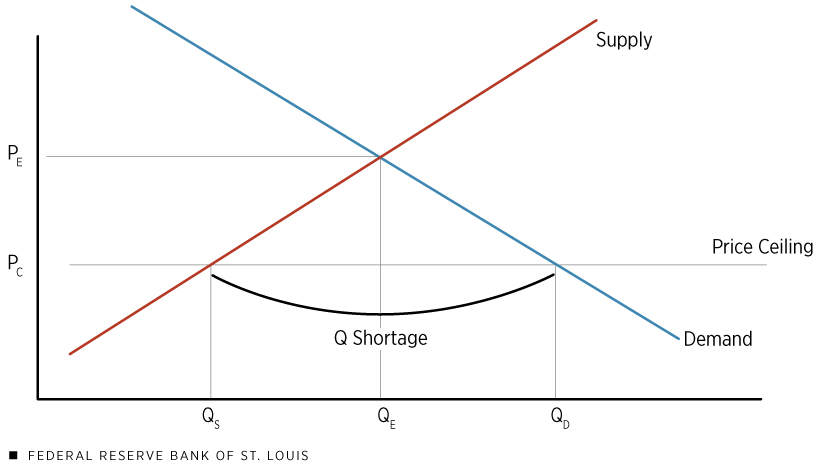Economics Economics questions and answers Pure monopolies are said to be allocatively inefficient because price is equal to marginal cost. price is greater than marginal cost. price is less than marginal cost. they produce where MR>MC. This problem has been solved!
Books: random walk
The Allocative Inefficiency of Monopoly. Allocative Efficiency requires production at Qe where P = MC. A monopoly will produce less output and sell at a higher price to maximize profit at Qm and Pm. Thus, monopolies don’t produce enough output to be allocatively efficient. Thus, consumers will suffer from a monopoly because it will sell a

Source Image: chegg.com
Download Image
May 14, 2022An unregulated monopoly supplier is highly likely to be allocatively inefficient because in monopoly the price is greater than MC. In a competitive market, the price would be lower and more consumers would benefit from purchasing the good. A monopoly results in dead-weight welfare loss of consumer and producer surplus.

Source Image: quizlet.com
Download Image
COMMERCE GURUKUL: January 2018 Firms in perfect competition are said to produce at an allocative efficient level because at Q1, P=MC; Monopolies – allocatively inefficient. Monopolies can increase price above the marginal cost of production and are allocatively inefficient. This is because monopolies have market power and can increase price to reduce consumer surplus.

Source Image: quotefancy.com
Download Image
Pure Monopolies Are Said To Be Allocatively Inefficient Because
Firms in perfect competition are said to produce at an allocative efficient level because at Q1, P=MC; Monopolies – allocatively inefficient. Monopolies can increase price above the marginal cost of production and are allocatively inefficient. This is because monopolies have market power and can increase price to reduce consumer surplus. A pure monopoly is defined as a single seller of a product, i.e. 100% of market share. In the UK a firm is said to have monopoly power if it has more than 25% of the market share. For example, Tesco @30% market share or Google 90% of search engine traffic. … A monopoly is allocatively inefficient because in monopoly (at Qm) the price is
John Stossel Quote: “As coercive monopolies that spend other people’s money taken by force, governments are uniquely unqualified to solve pro…”
Pure monopolies are said to be allocatively inefficient because ____. price is less than marginal costprice is greater than marginal costthey produce where MR > MCprice is equal to marginal cost This problem has been solved! You’ll get a detailed solution that helps you learn core concepts. See Answer Solved Pure monopolies are said to be allocatively | Chegg.com

Source Image: chegg.com
Download Image
Market Structure | PDF | Monopoly | Perfect Competition Pure monopolies are said to be allocatively inefficient because ____. price is less than marginal costprice is greater than marginal costthey produce where MR > MCprice is equal to marginal cost This problem has been solved! You’ll get a detailed solution that helps you learn core concepts. See Answer

Source Image: scribd.com
Download Image
Books: random walk Economics Economics questions and answers Pure monopolies are said to be allocatively inefficient because price is equal to marginal cost. price is greater than marginal cost. price is less than marginal cost. they produce where MR>MC. This problem has been solved!

Source Image: edwardbetts.com
Download Image
COMMERCE GURUKUL: January 2018 May 14, 2022An unregulated monopoly supplier is highly likely to be allocatively inefficient because in monopoly the price is greater than MC. In a competitive market, the price would be lower and more consumers would benefit from purchasing the good. A monopoly results in dead-weight welfare loss of consumer and producer surplus.

Source Image: commercegurukulca.blogspot.com
Download Image
Unit 9: Monopoly | Econproph [Micro] Pure monopolies are said to be allocatively inefficient because price is equal to marginal cost. price is greater than marginal cost. price is less than marginal cost. they produce where MR>MC. Question 9 ( 2 points) A healthcare provider – that is a monopoly – faces the following market demand schedule: This problem has been solved!
![Unit 9: Monopoly | Econproph [Micro]](http://micro.econproph.net/files/2012/08/John-D-Rockefeller-sen2-237x300.jpg)
Source Image: micro.econproph.net
Download Image
John Stossel Quote: “As coercive monopolies that spend other people’s money taken by force, governments are uniquely unqualified to solve pro…” Firms in perfect competition are said to produce at an allocative efficient level because at Q1, P=MC; Monopolies – allocatively inefficient. Monopolies can increase price above the marginal cost of production and are allocatively inefficient. This is because monopolies have market power and can increase price to reduce consumer surplus.

Source Image: quotefancy.com
Download Image
Why Price Controls Should Stay in the History Books A pure monopoly is defined as a single seller of a product, i.e. 100% of market share. In the UK a firm is said to have monopoly power if it has more than 25% of the market share. For example, Tesco @30% market share or Google 90% of search engine traffic. … A monopoly is allocatively inefficient because in monopoly (at Qm) the price is

Source Image: stlouisfed.org
Download Image
Market Structure | PDF | Monopoly | Perfect Competition
Why Price Controls Should Stay in the History Books The Allocative Inefficiency of Monopoly. Allocative Efficiency requires production at Qe where P = MC. A monopoly will produce less output and sell at a higher price to maximize profit at Qm and Pm. Thus, monopolies don’t produce enough output to be allocatively efficient. Thus, consumers will suffer from a monopoly because it will sell a
COMMERCE GURUKUL: January 2018 John Stossel Quote: “As coercive monopolies that spend other people’s money taken by force, governments are uniquely unqualified to solve pro…” Pure monopolies are said to be allocatively inefficient because price is equal to marginal cost. price is greater than marginal cost. price is less than marginal cost. they produce where MR>MC. Question 9 ( 2 points) A healthcare provider – that is a monopoly – faces the following market demand schedule: This problem has been solved!